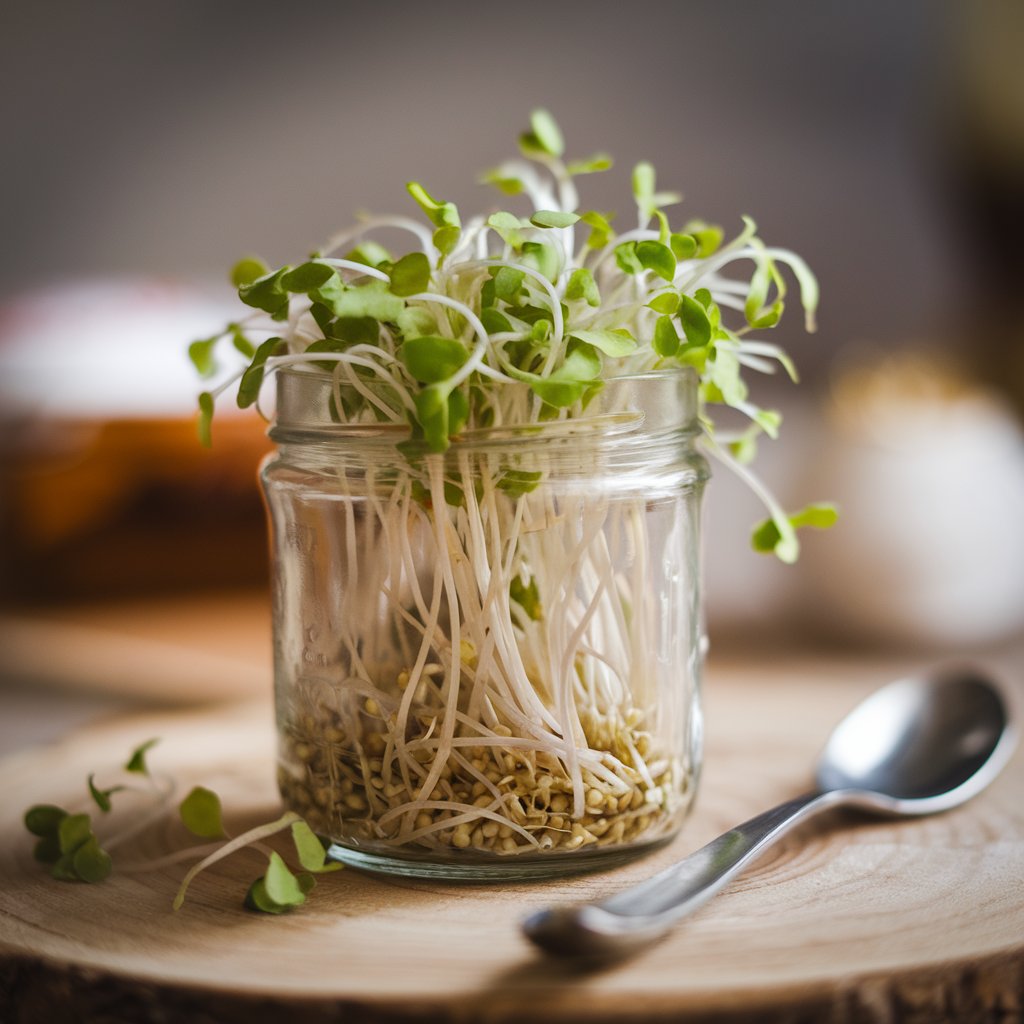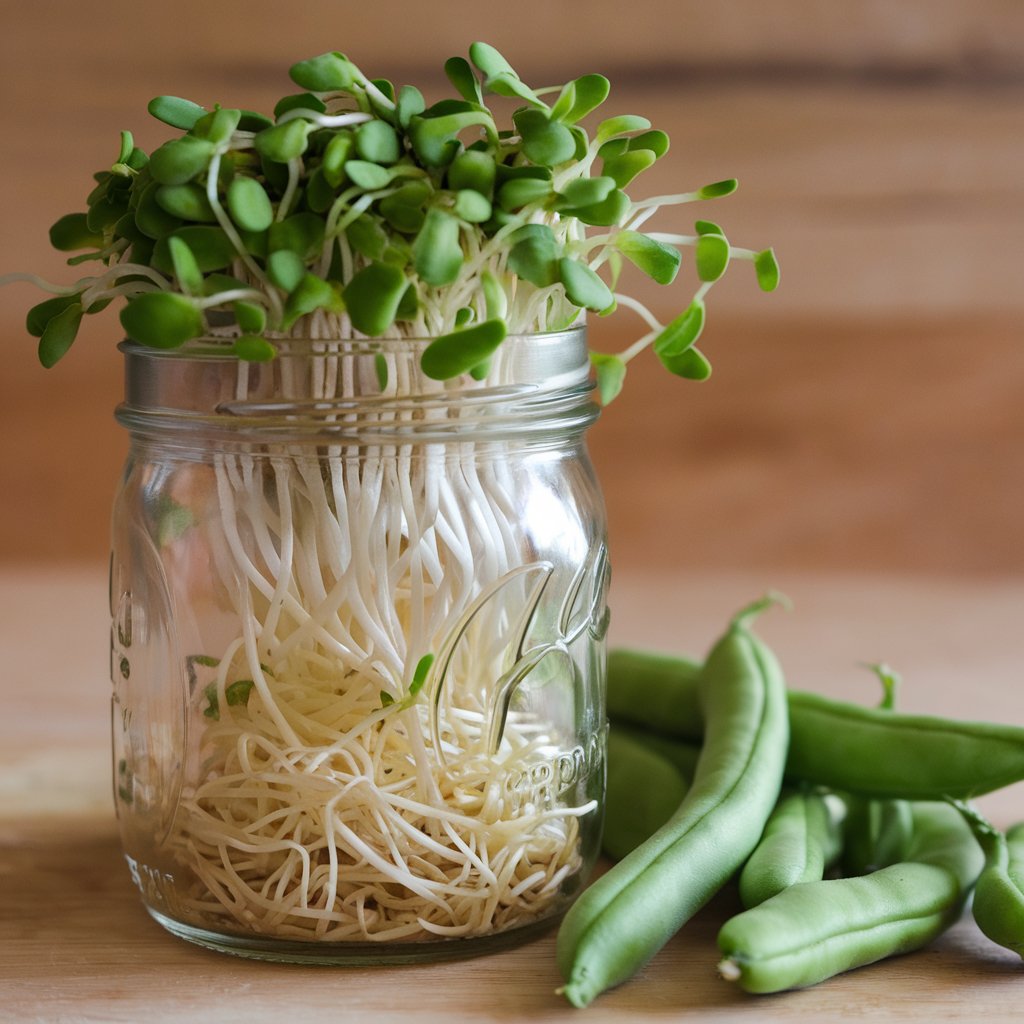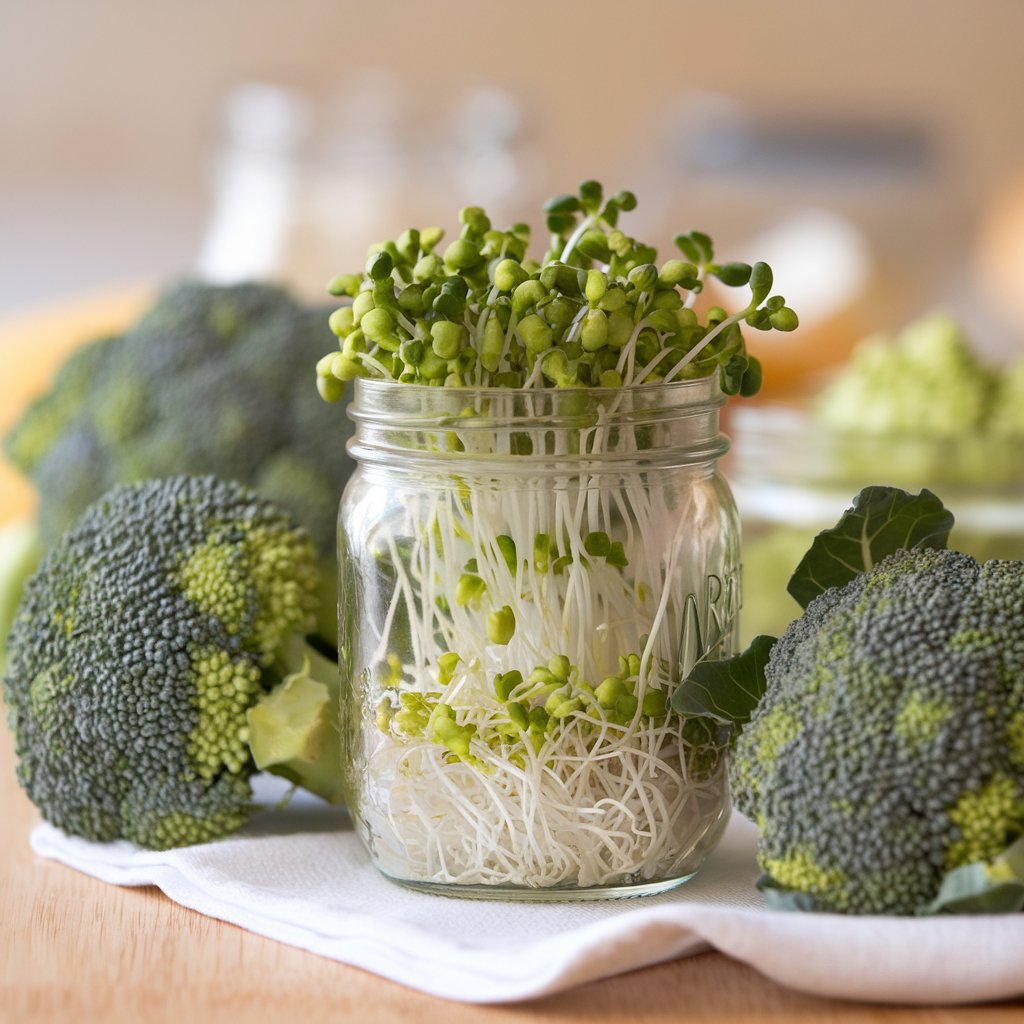Alfalfa sprouts are a powerhouse of nutrients packed into tiny, crisp shoots. These popular sprouts are not only easy to grow but also boast numerous health benefits and culinary versatility. From salads to sandwiches, they can add a fresh, crunchy texture and a range of essential vitamins and minerals to your diet.
In this guide, we’ll explore everything you need to know about alfalfa sprouts, including their nutritional benefits, how to grow them at home, and creative ways to incorporate them into your meals.
What Are Alfalfa Sprouts?
Alfalfa sprouts are the young shoots of the alfalfa plant (Medicago sativa), a member of the legume family. Unlike the mature alfalfa plant, which is often grown as livestock feed, the sprouts are harvested just days after germination and are prized for their mild flavor and crunchy texture. Alfalfa sprouts are typically pale green or white, with delicate, thread-like roots.
Nutritional Benefits of Alfalfa Sprouts
Alfalfa sprouts are known for their impressive nutritional profile, making them a fantastic addition to a healthy diet. Here’s a look at their key nutrients and how they can benefit your health:
1. Rich in Vitamins and Minerals
Alfalfa sprouts contain essential vitamins such as vitamin C, vitamin K, and several B vitamins, which are crucial for energy production and cell function. They’re also a good source of minerals like calcium, magnesium, potassium, and iron, supporting bone health, muscle function, and oxygen transport in the blood.
2. High in Antioxidants
The antioxidants found in alfalfa sprouts, such as flavonoids and phytoestrogens, help fight free radicals, which are molecules that can damage cells and contribute to aging and diseases. By consuming alfalfa sprouts, you’re giving your body a boost in its fight against oxidative stress.
3. Supports Digestive Health
Alfalfa sprouts are rich in fiber, which promotes digestive health by supporting regular bowel movements and feeding beneficial gut bacteria. Fiber can also help regulate blood sugar levels and lower cholesterol, further benefiting cardiovascular health.
4. Low in Calories, High in Nutrients
One of the main reasons health enthusiasts love alfalfa sprouts is their nutrient density relative to their calorie count. They’re low in calories but packed with vitamins, minerals, and plant compounds, making them ideal for those looking to manage weight while maximizing nutrition.
5. May Help Lower Cholesterol
Some studies suggest that compounds in alfalfa sprouts can help reduce LDL cholesterol (the “bad” cholesterol) and improve overall heart health. This is likely due to their fiber content and the presence of saponins, plant compounds that help reduce cholesterol absorption.
6. Hormone Support and Menopausal Relief
Alfalfa sprouts contain phytoestrogens, plant-based compounds that mimic estrogen in the body. These phytoestrogens may help alleviate menopausal symptoms, such as hot flashes, by balancing hormone levels naturally. However, anyone considering them for hormonal support should consult a healthcare provider.
How to Grow Alfalfa Sprouts at Home
Growing alfalfa sprouts at home is simple, affordable, and only requires a few supplies. Here’s a step-by-step guide to get you started:
What You’ll Need:
- Organic alfalfa seeds
- A clean glass jar (1-quart or larger)
- A mesh lid or a piece of cheesecloth and a rubber band.
- Fresh, filtered water
Instructions:
- Rinse and Soak the Seeds: Start by rinsing a tablespoon of alfalfa seeds under cold water to remove any dust or debris. Place them in your jar and add enough water to cover the seeds. Soak them overnight (about 8-12 hours) to kickstart the sprouting process.
- Drain and Rinse: After soaking, drain the seeds and rinse them again with fresh water. Secure a mesh lid or cheesecloth over the mouth of the jar and drain thoroughly.
- Begin Sprouting: Position the jar upside down at an angle in a bowl or dish rack to allow for airflow and drainage. Keep the jar in a dim, cool area, avoiding direct sunlight.
- Rinse Twice Daily: Rinse and drain the seeds twice a day, morning and evening, for the next 4-5 days. Alfalfa sprouts typically grow quickly, and you’ll notice small shoots within a day or two.
- Harvest: When the sprouts are about 1-2 inches long and have small green leaves, they’re ready to harvest. Give them a final rinse and remove any seed hulls by submerging them in water and skimming the hulls off the surface.
- Store: Once harvested, store your alfalfa sprouts in an airtight container in the refrigerator for up to a week. Make sure they are dry before storing to prevent spoilage.
Creative Ways to Use Alfalfa Sprouts in Your Meals

Alfalfa sprouts have a mild flavor and add a lovely crunch to various dishes. Here are some ideas to help you incorporate them into your meals:
1. Salads
Alfalfa sprouts make a great addition to fresh salads, adding texture and nutrients without overpowering other flavors. They pair well with leafy greens, sliced cucumbers, tomatoes, and a light vinaigrette.
2. Sandwiches and Wraps
Layer alfalfa sprouts in sandwiches or wraps for extra crunch. They’re perfect with avocado, hummus, or turkey for a healthy, filling meal.
3. Smoothies and Juices
Blend a small handful of alfalfa sprouts into your favorite smoothie for an extra nutritional boost. Their mild taste blends well with fruits and vegetables, adding fiber and antioxidants.
4. Buddha Bowls
Add alfalfa sprouts to Buddha bowls or grain bowls for a fresh, crisp texture. They work wonderfully alongside quinoa, roasted veggies, and a drizzle of tahini dressing.
5. Garnishes
Use alfalfa sprouts as a garnish for soups, tacos, or scrambled eggs. Their bright green color and delicate texture add visual appeal as well as nutrition.
6. Stir into Dips
Alfalfa sprouts can be mixed into dips like guacamole, salsa, or yogurt-based dips for added texture and nutrients. They’re especially great in creamy dips where they add a light, refreshing crunch.
Health and Safety Tips for Enjoying Alfalfa Sprouts
While alfalfa sprouts are nutritious, it’s essential to handle them with care to reduce the risk of contamination. Here are some safety tips:
- Use Organic Seeds: Choose organic alfalfa seeds from a reputable source to reduce the risk of pesticide residues and other contaminants.
- Clean Equipment: Ensure your jars, lids, and any other equipment are clean and sanitized before use.
- Store Properly: Keep your harvested sprouts in the refrigerator and consume them within a week.
- Consider Light Cooking: If you’re pregnant, elderly, or immunocompromised, lightly cook alfalfa sprouts before consuming to minimize bacterial risk.
Frequently Asked Questions About Alfalfa Sprouts
1. Are alfalfa sprouts safe to eat raw?
Yes, alfalfa sprouts are generally safe to eat raw when grown in a clean environment and handled properly. However, those with weakened immune systems should consider cooking them to reduce any risk of bacterial contamination.
2. Can I freeze alfalfa sprouts?
Freezing is not recommended for alfalfa sprouts, as it affects their texture and freshness. It’s best to grow them in small batches and consume them fresh.
3. Are alfalfa sprouts gluten-free?
Yes, alfalfa sprouts are naturally gluten-free and are a fantastic option for those with gluten sensitivities.
4. How long do alfalfa sprouts last?
When stored in the refrigerator in an airtight container, alfalfa sprouts can last up to a week. Rinse them every few days to keep them fresh.
5. Do alfalfa sprouts taste bitter?
Alfalfa sprouts have a mild, slightly nutty flavor. If they taste bitter, they may be past their prime. Always taste a small amount before using them in your dishes.
Conclusion: Why You Should Add Alfalfa Sprouts to Your Diet
Alfalfa sprouts are a versatile, nutrient-dense food that can easily be incorporated into various meals. They provide a wealth of vitamins, minerals, antioxidants, and fiber, supporting overall health and wellness. Whether you’re looking to add a crunch to your salad, enhance the nutritional profile of your sandwich, or boost your smoothie’s fiber content, alfalfa sprouts are a delicious and beneficial addition to any diet.
Growing your own alfalfa sprouts at home is easy and rewarding, allowing you to enjoy fresh, organic sprouts whenever you want. So why not start sprouting and experience the health benefits of alfalfa sprouts firsthand? With their impressive nutrient content and numerous culinary uses, alfalfa sprouts are sure to become a favorite addition to your meals.





Pingback: How to Eat Sprouts: The Best Times and Benefits